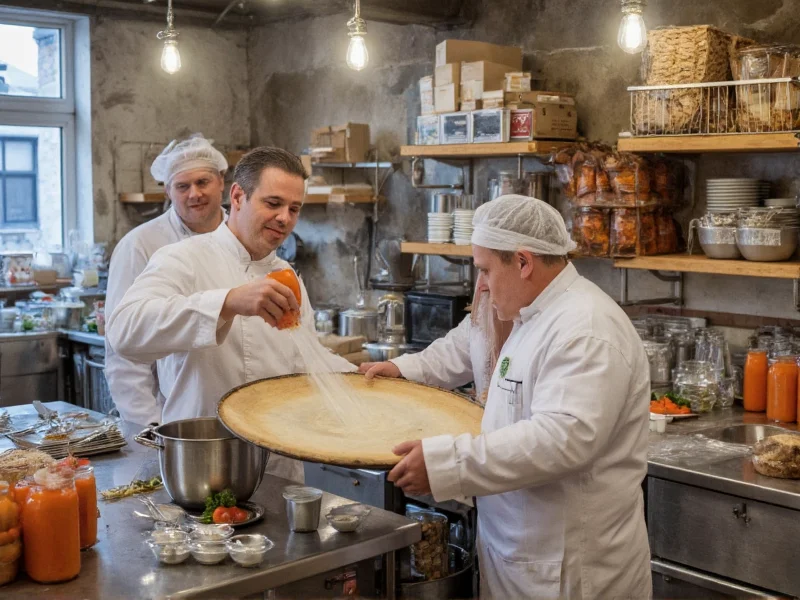For consumers searching for authentic New England culinary experiences, understanding regional food producers like NE Soup Factory provides valuable context about where to find genuine local products. This Massachusetts-based operation has established itself as a reliable source for traditional New England soups since its founding in 2005.
History and Regional Significance
NE Soup Factory emerged from a family-owned seafood business that operated in Gloucester, Massachusetts for three generations. The transition from a small seafood processor to a dedicated soup manufacturer occurred when the owners recognized growing consumer demand for authentic New England-style soups beyond the immediate coastal region.
Unlike national soup brands that adapt recipes for broader palates, NE Soup Factory maintains traditional New England preparation methods. Their clam chowder follows the regional standard of using salt pork instead of bacon, with a milk-based broth rather than tomato-based like Manhattan-style chowder. This commitment to regional authenticity has earned them recognition among culinary historians studying New England food traditions.
Product Line and Manufacturing Process
The factory produces seven core soup varieties that represent New England's culinary heritage:
| Product | Key Ingredients | Distribution |
|---|---|---|
| Traditional New England Clam Chowder | Quahog clams, salt pork, potatoes, onions, milk | Regional grocery chains |
| Lobster Bisque | Lobster stock, cream, sherry, spices | Specialty food stores |
| Seafood Chowder | Multiple fish varieties, clam juice, vegetables | Restaurants, foodservice |
| Bean Hole Baked Beans | Navy beans, molasses, mustard, salt pork | Seasonal availability |
What distinguishes NE Soup Factory from larger commercial producers is their batch production approach. Each 500-gallon batch receives individual attention during the cooking process, with quality control checks at multiple stages. The company maintains partnerships with local seafood suppliers, ensuring fresh ingredients rather than relying solely on frozen products.
Distribution and Availability
While not a national brand, NE Soup Factory has established a solid regional presence. Their products appear in:
- Independent grocery stores throughout New England
- Select regional supermarket chains including Shaw's and Hannaford
- Specialty food retailers like Williams Sonoma in the northeastern US
- Foodservice distributors serving New England restaurants
Consumers outside New England can order certain products through the company's limited online store, though shipping restrictions apply to perishable items. The factory does not operate retail storefronts for public visits, focusing exclusively on production rather than direct consumer sales.
Quality Standards and Production Ethics
As a regional food producer, NE Soup Factory adheres to Massachusetts Department of Public Health food safety regulations. Their facility maintains regular inspections from both state authorities and third-party food safety auditors. Unlike some larger manufacturers, they avoid artificial preservatives, relying instead on proper canning techniques for shelf-stable products.
The company participates in the Gulf of Maine Research Institute's seafood sustainability program, ensuring their seafood ingredients come from responsibly managed fisheries. This commitment to sustainable sourcing aligns with New England's growing emphasis on environmentally conscious food production.
Finding Authentic New England Soup Products
For consumers seeking genuine New England culinary experiences, identifying authentic regional producers requires attention to detail. Look for these indicators when evaluating New England soup products:
- Manufactured within New England states (MA, CT, RI, VT, NH, ME)
- Recipes that follow regional traditions (milk-based chowder, not tomato)
- Use of regional ingredients like quahog clams rather than generic clam varieties
- Company history rooted in New England food traditions
When shopping for New England-style soups, check product labels for manufacturing location rather than just branding. Some national brands market "New England" products manufactured outside the region with adapted recipes that don't reflect authentic preparation methods.
Where is NE Soup Factory located?
NE Soup Factory operates from a manufacturing facility in Gloucester, Massachusetts. The company does not maintain public retail locations but produces soups distributed throughout New England grocery stores and restaurants.
What makes New England clam chowder different?
Authentic New England clam chowder uses a milk-based broth rather than tomato, contains salt pork instead of bacon, and features quahog clams. NE Soup Factory follows these traditional preparation methods rather than adapting the recipe for broader national preferences.
Can I visit NE Soup Factory for tours?
No, NE Soup Factory operates strictly as a manufacturing facility without public tours or retail storefronts. Their business model focuses on production and distribution to grocery stores and restaurants rather than direct consumer visits.
Where can I buy NE Soup Factory products outside New England?
Limited product availability exists through their online store for select non-perishable items, though shipping restrictions apply. Some specialty food retailers outside New England may carry their products, but regional distribution remains concentrated in northeastern states.
How does NE Soup Factory ensure seafood sustainability?
The company participates in the Gulf of Maine Research Institute's sustainability program, verifying that their seafood ingredients come from responsibly managed fisheries. They maintain documentation of sourcing practices for all seafood ingredients used in their soups and chowders.











 浙公网安备
33010002000092号
浙公网安备
33010002000092号 浙B2-20120091-4
浙B2-20120091-4